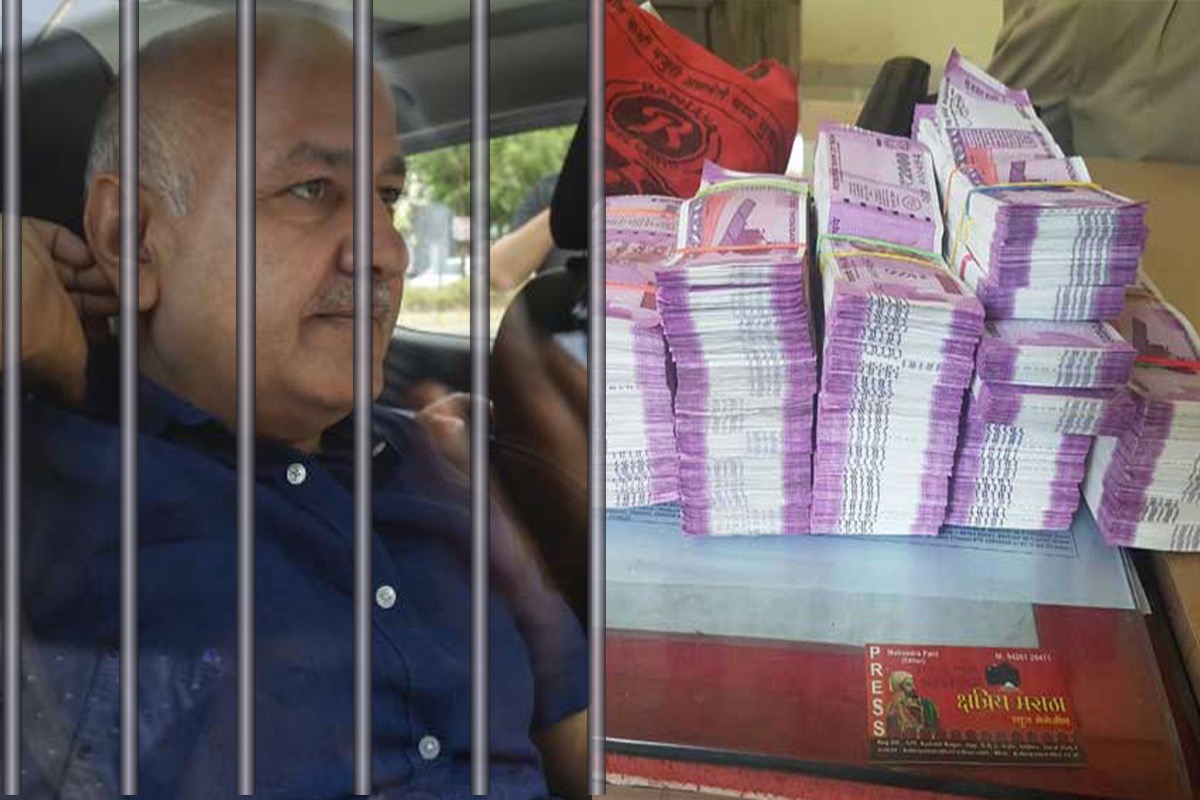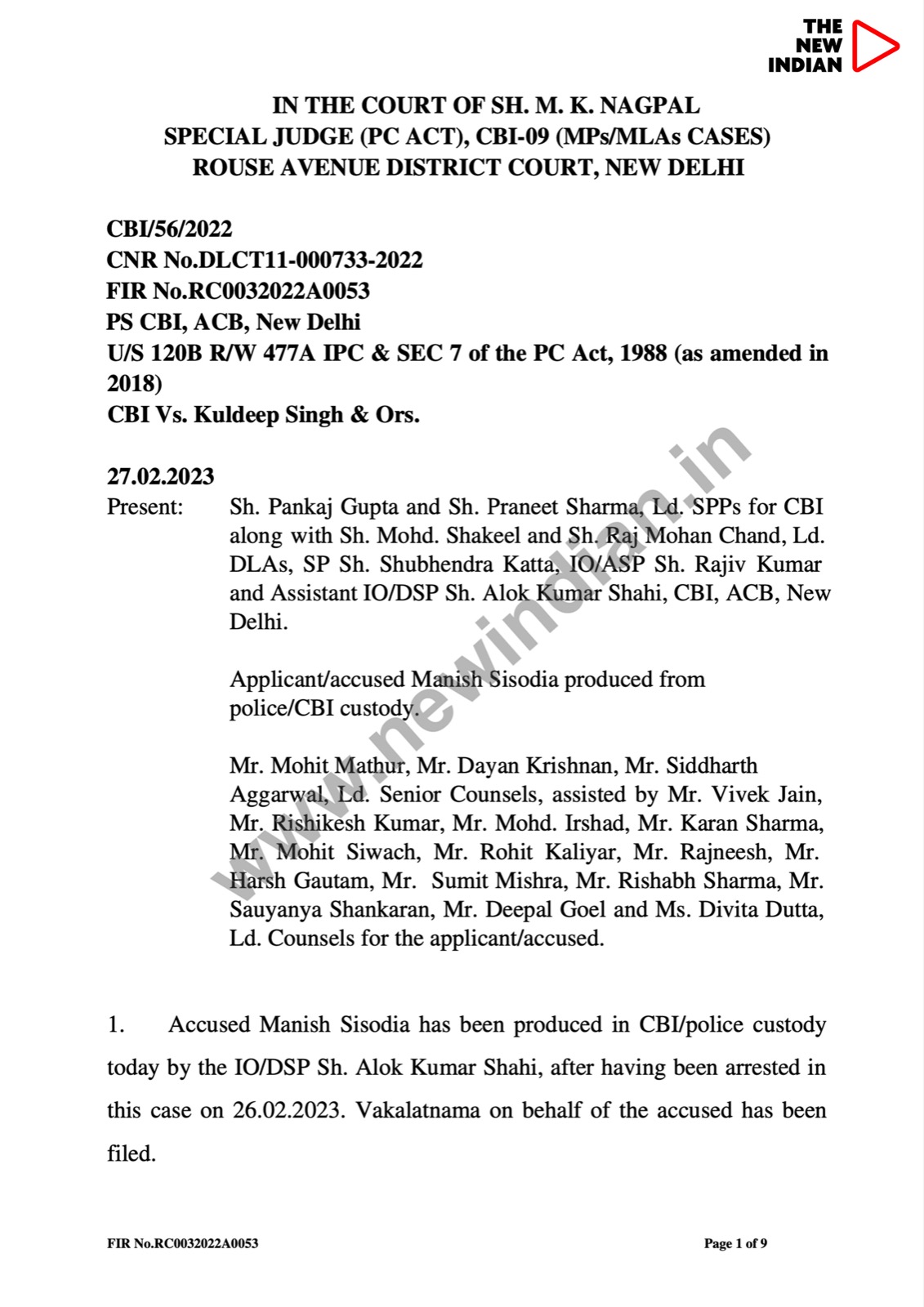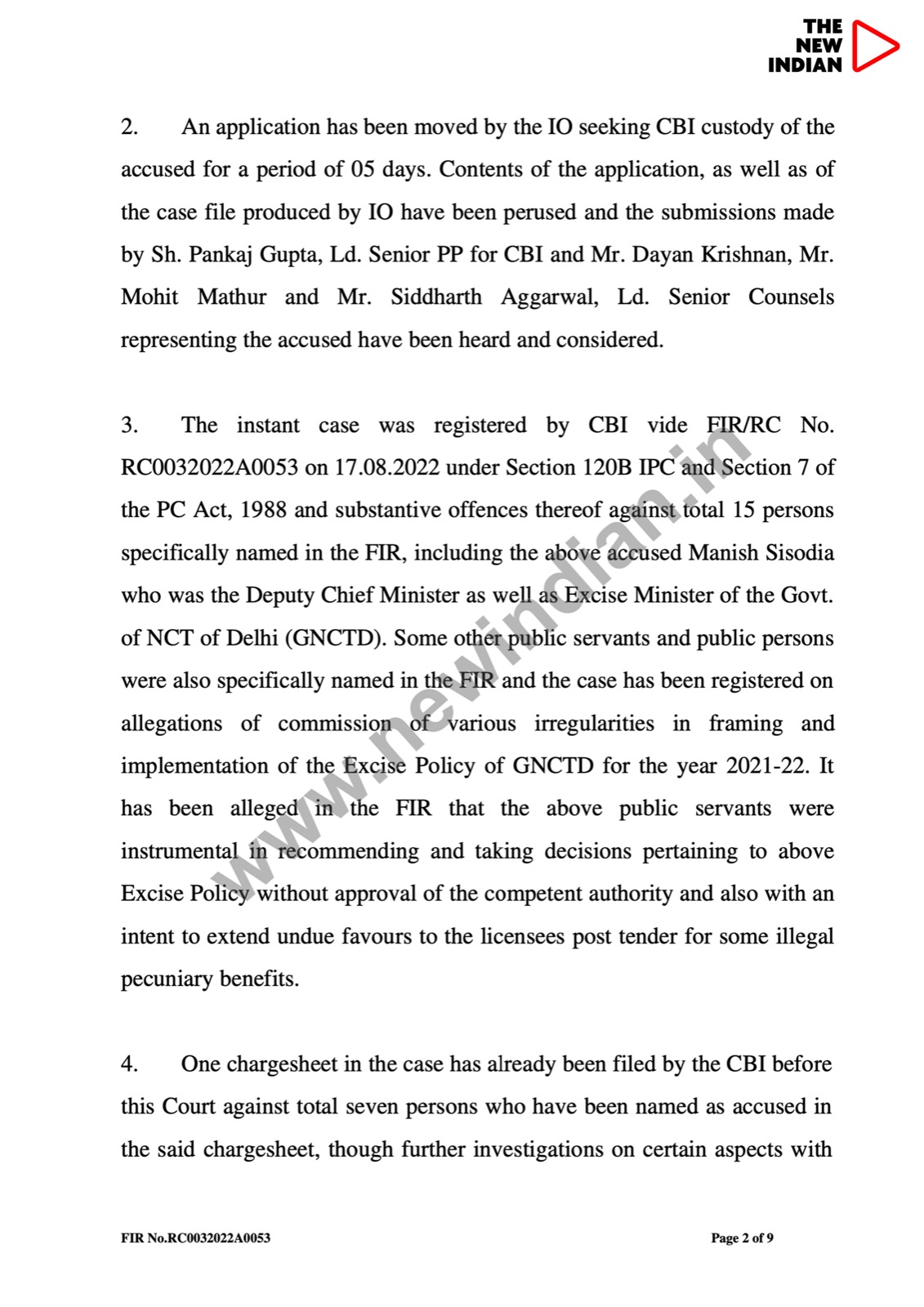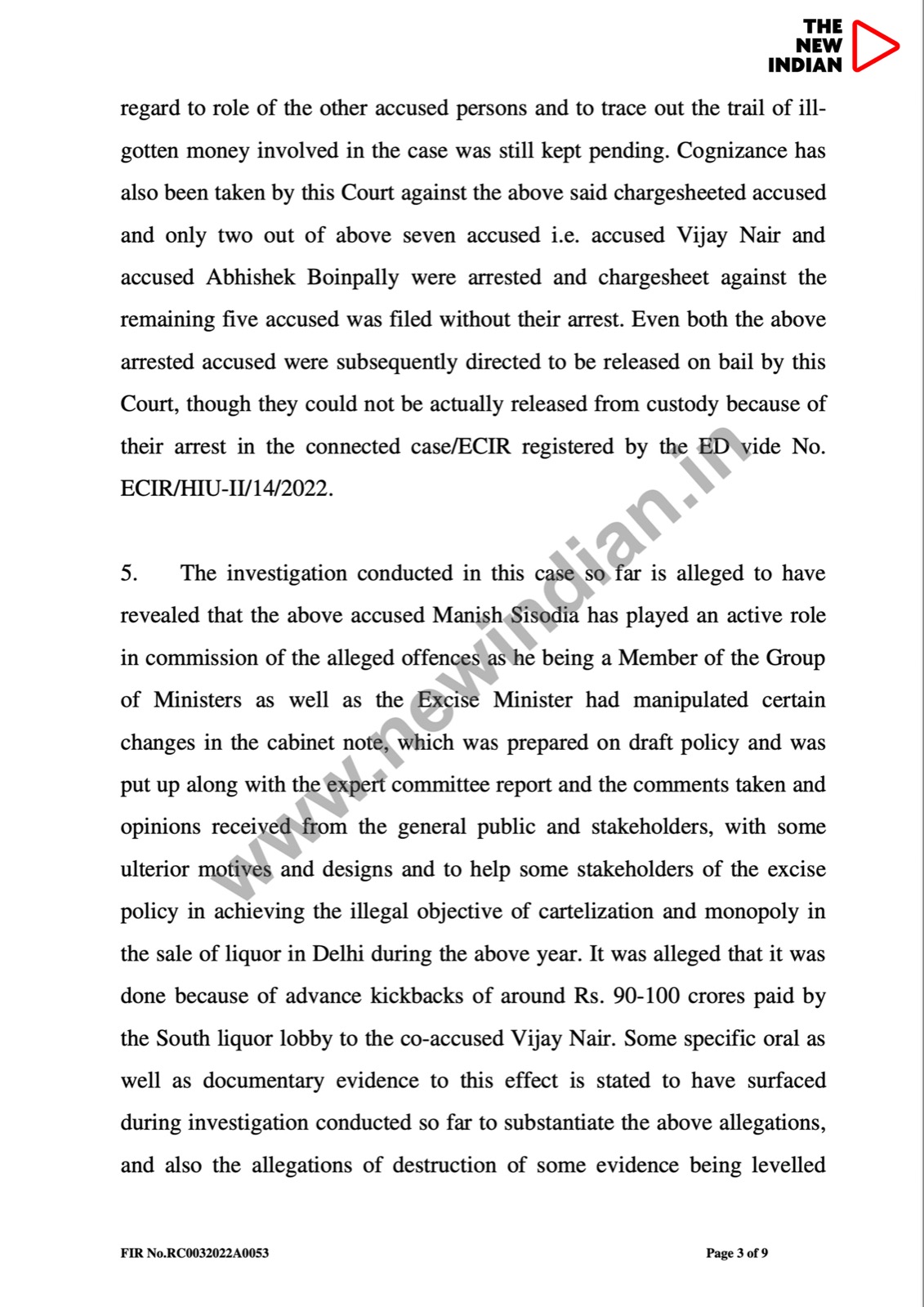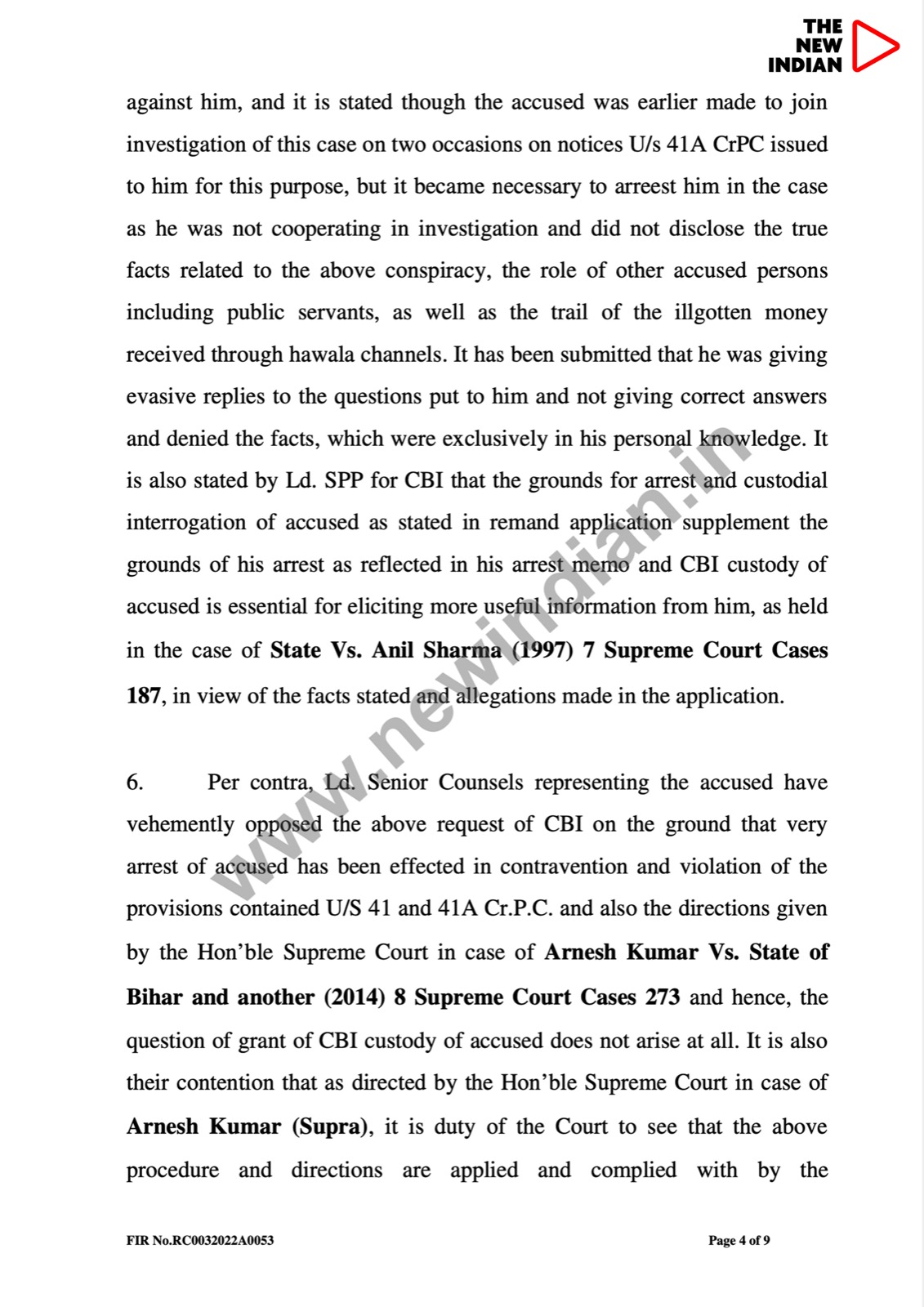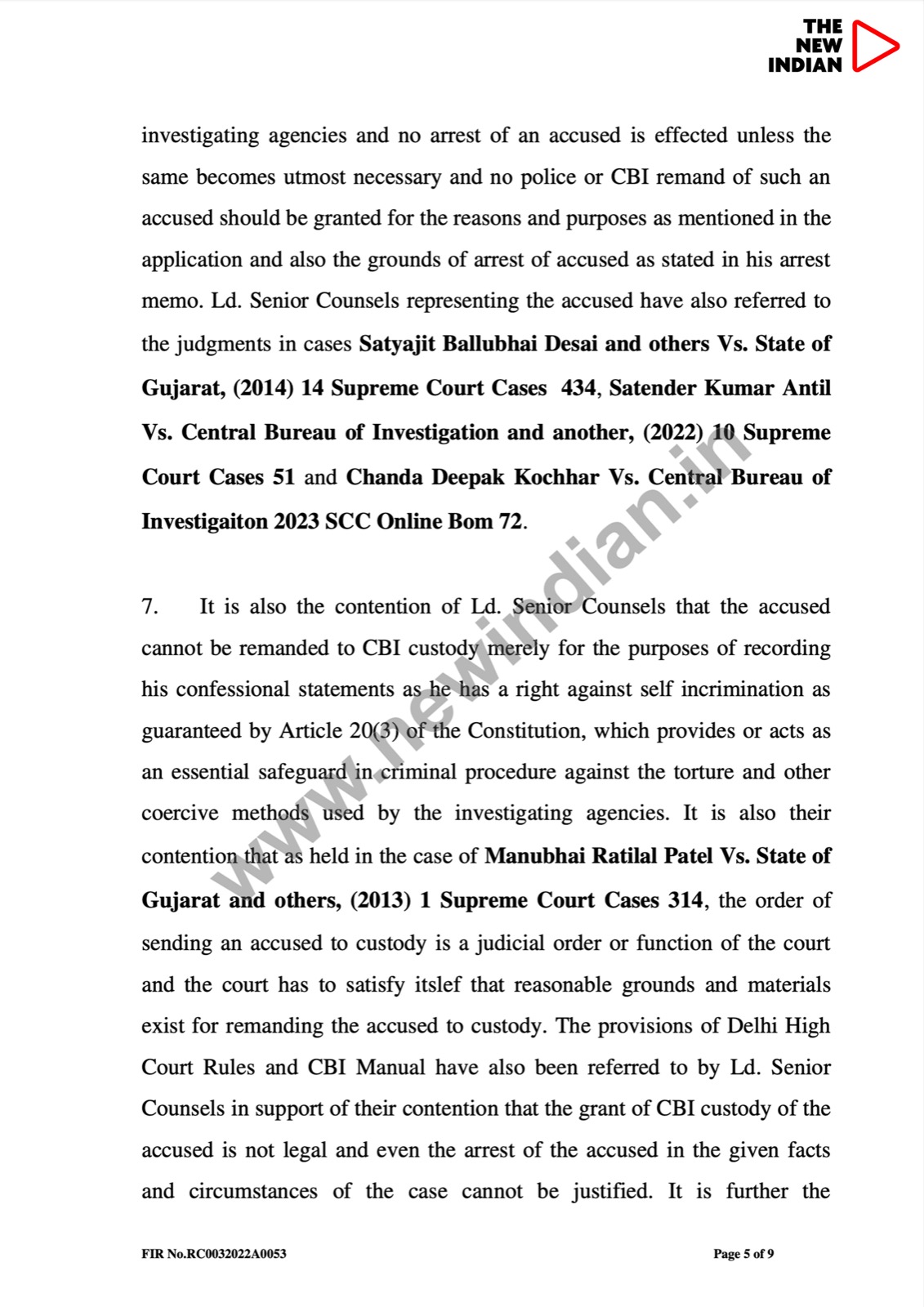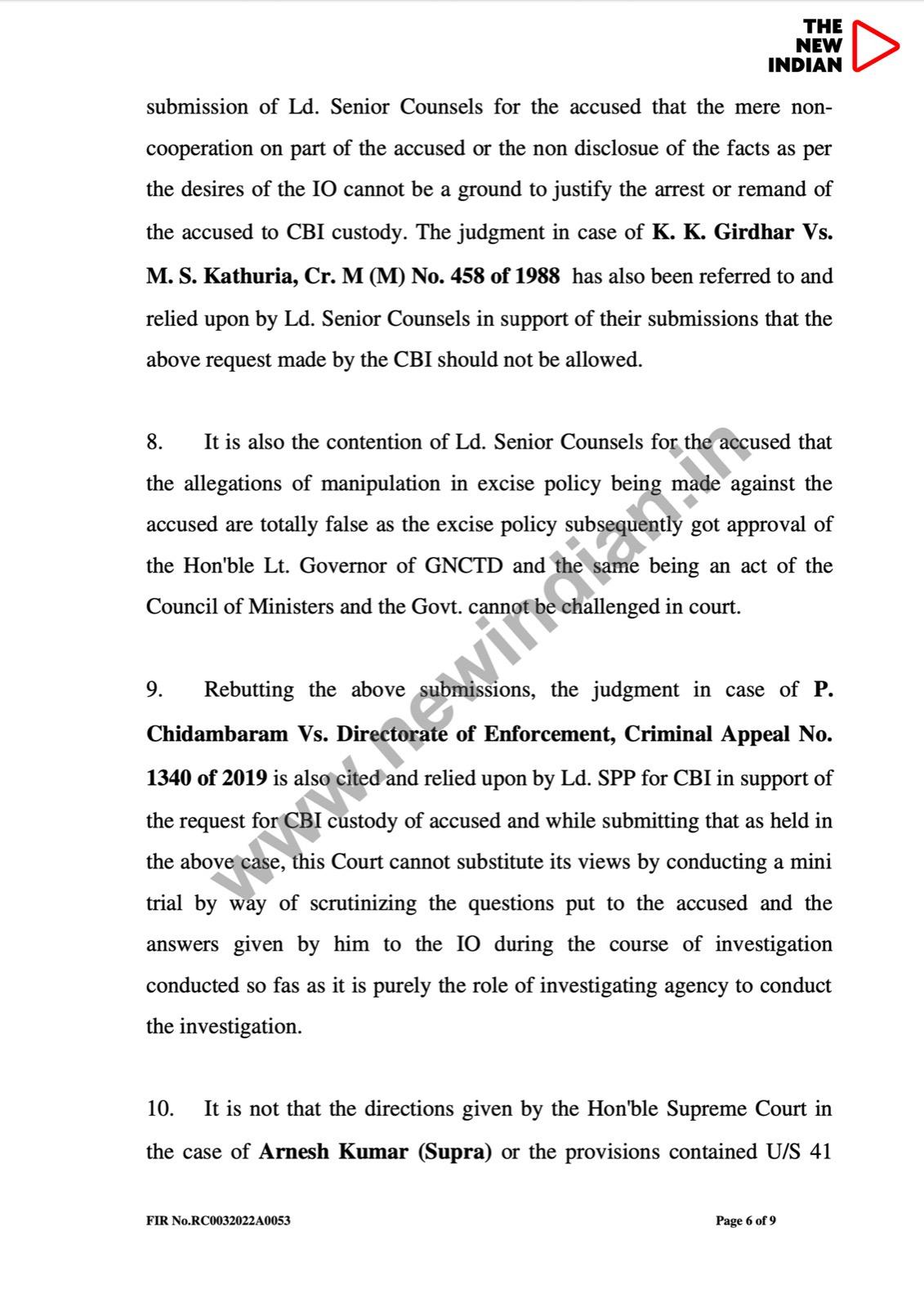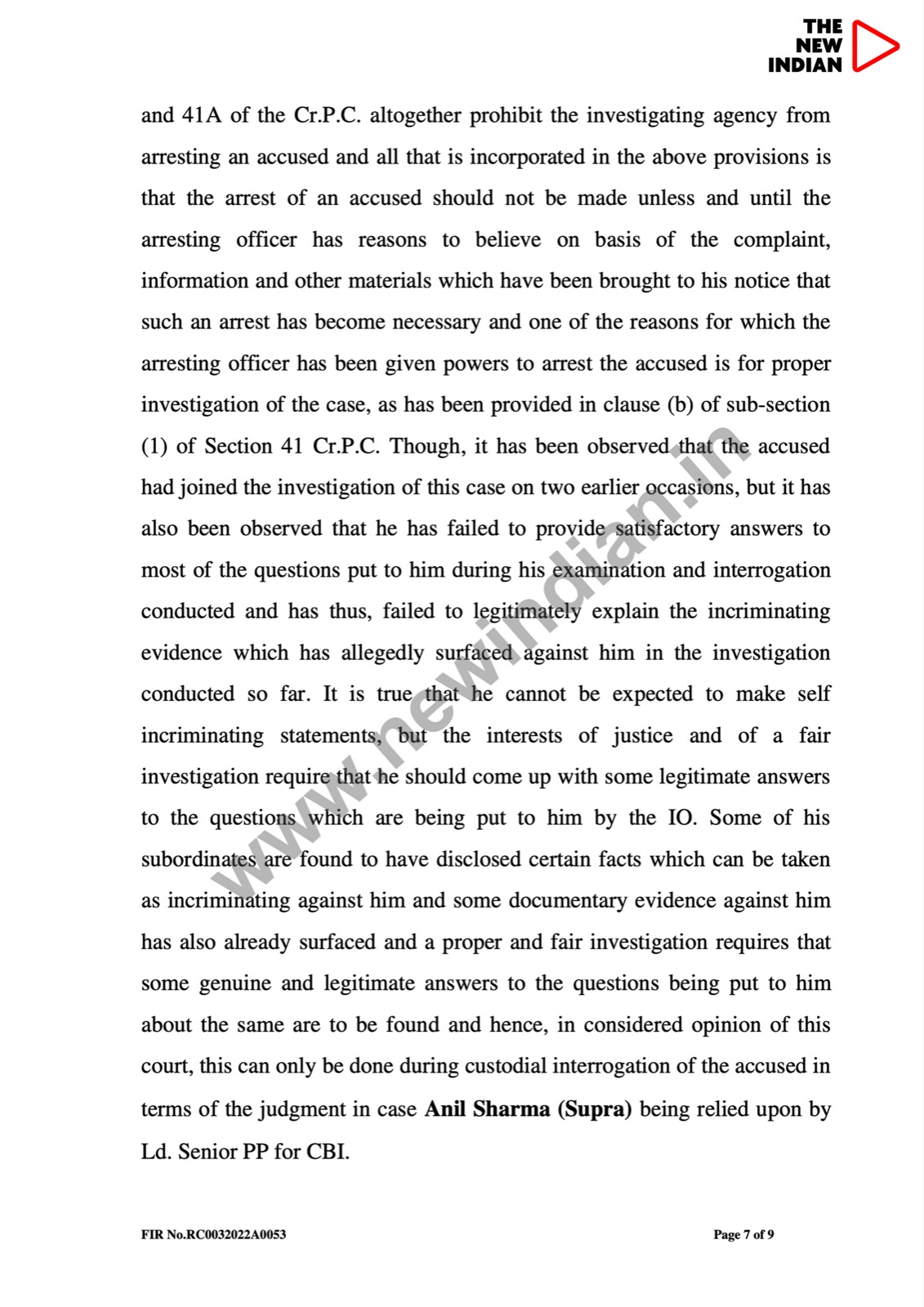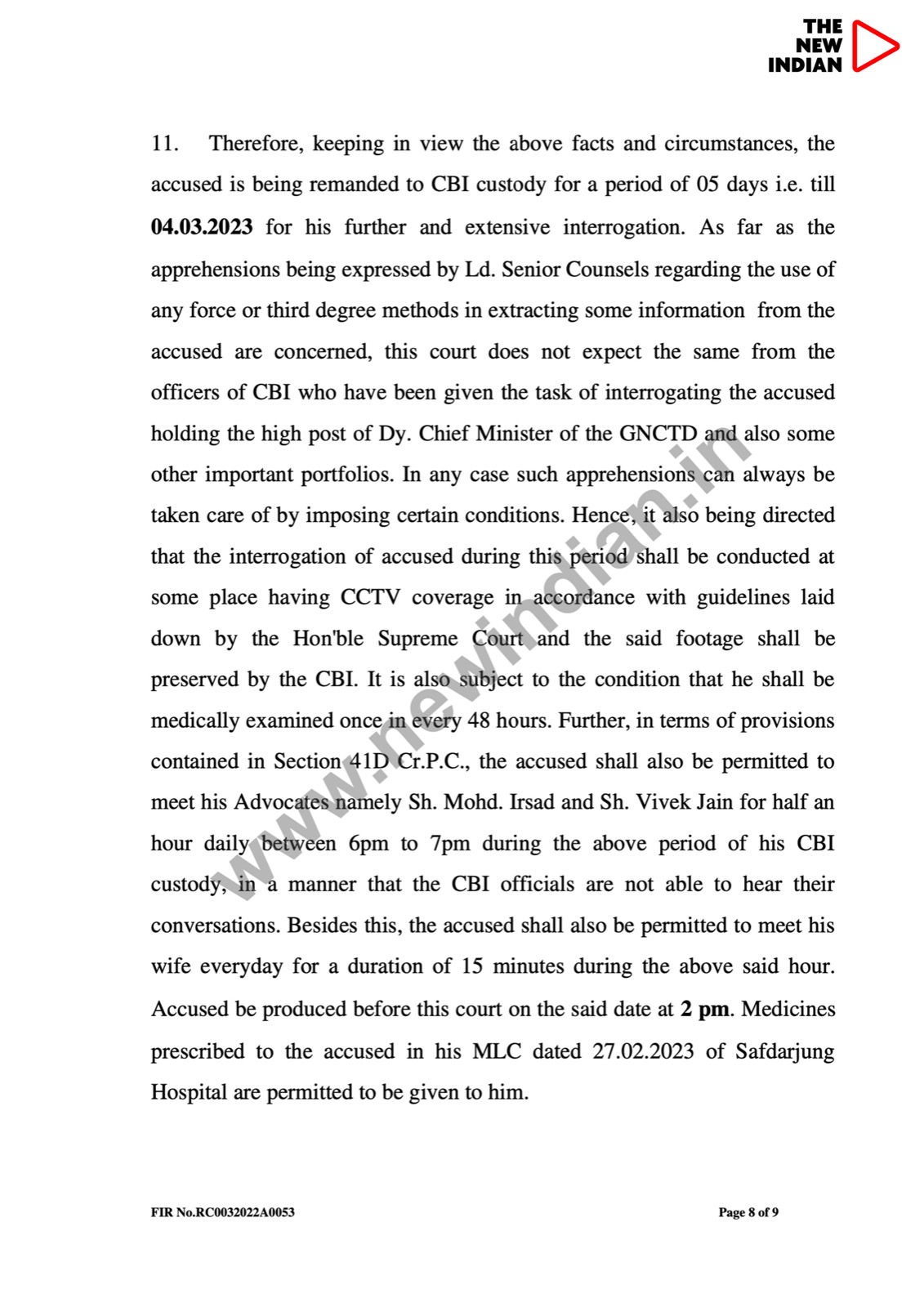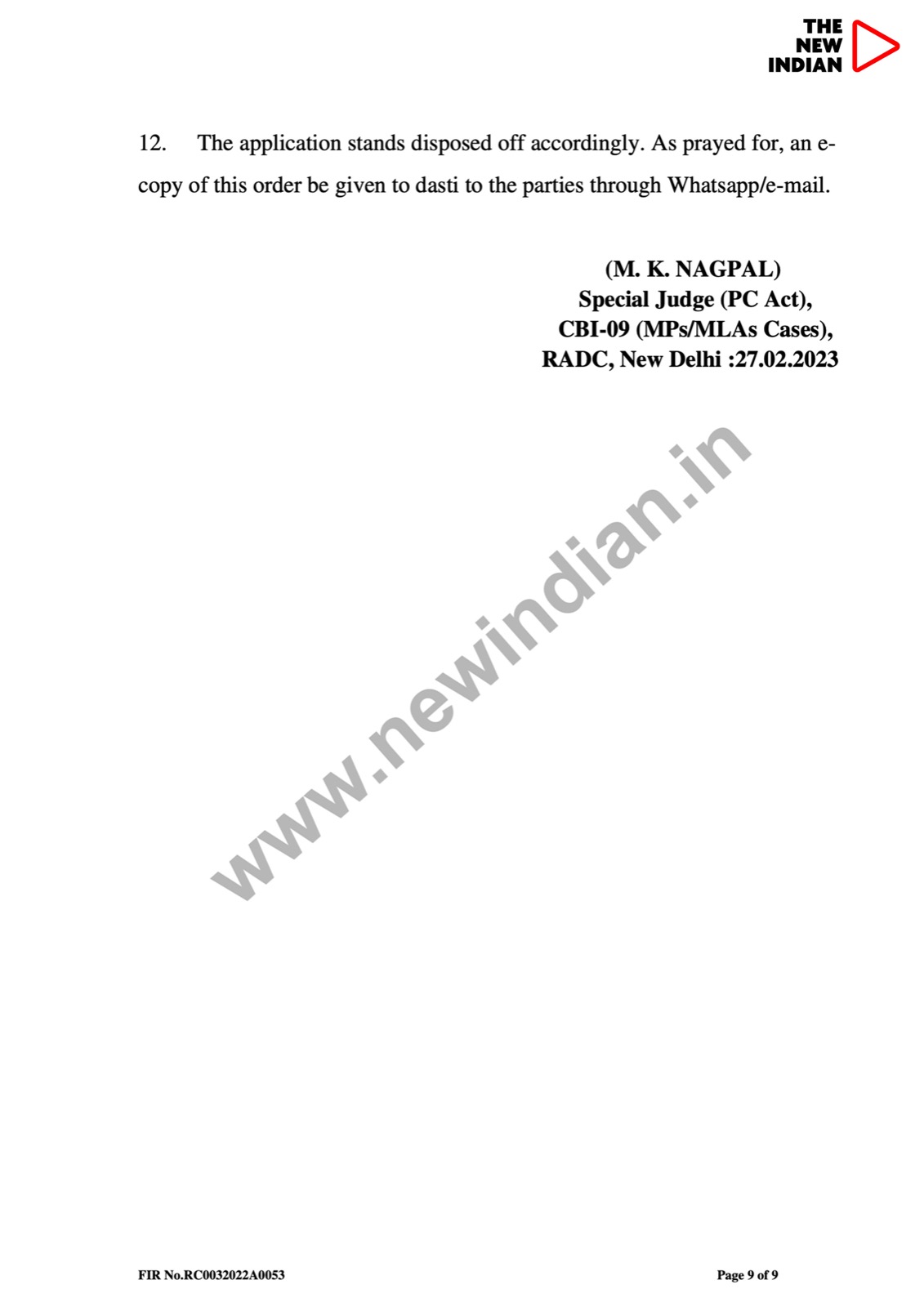On a day when a Delhi Court sent Deputy Chief Minister Manish Sisodia to CBI custody till March 4 in connection with the now-scrapped Delhi excise policy case, the agency’s plea has revealed that kickbacks amounting to ₹ 90 cr was routed to the politician’s men by a South India liquor lobby.
“It was alleged that it was done because of advance kickbacks of around ₹90 – ₹100 crores paid by the South liquor lobby to the co-accused Vijay Nair. Some specific oral as well as documentary evidence to this effect is stated to have surfaced during the investigation conducted so far to substantiate the above allegations, and also the allegations of destruction of some evidence being levelled against him,” the judge noted.
On Monday, the Special CBI Court granted the CBI remand to question Sisodia in the case. Sisodia was arrested on Sunday after being questioned for over eight hours.
Special CBI Judge MK Nagpal granted remand to Manish Sisodia after hearing the arguments of the CBI and defence counsels at length.
In its remand order, the Judge observed that the investigation in the case so far is alleged to have revealed that Sisodia, being an Excise Minister, “had manipulated certain changes in the cabinet note, which was prepared on the draft policy and was put up along with the expert committee report and the comments taken and opinions received from the general public and stakeholders, with some ulterior motives and designs and to help some stakeholders of the excise policy in achieving the illegal objective of cartelization and monopoly in the sale of liquor in Delhi during the above year.”
“It became necessary to arrest him in the case as he was not cooperating in the investigation and did not disclose the true facts related to the above conspiracy, the role of other accused persons, including public servants, as well as the trail of the ill-gotten money received through hawala channels,” Special CBI judge Nagpal observed.
While seeking a five-day remand for Sisodia, the CBI’s public prosecutor submitted before the court that the AAP leader was heading the Group of Ministers (GoM).
“It is a case of increasing the profit margin from 5 per cent to 12 per cent and benefiting the liquor manufacturer,” the CBI alleged in court.
It is alleged that two draft policies were recovered from his computer. “In one draft, the percentage of the commission was 5 per cent. In another policy, the percentage of profit was 12 per cent. During the investigation, he could not explain why the changes were made,” the CBI argued in court. It further said that the conspiracy was hatched in a very “secret manner”.
The CBI also alleged that Sisodia, who is number two in AAP after Delhi Chief minister Arvind Kejriwal, directed excise officials to issue a licence to Indospirit, which was also in touch with the South Group.
“Investigation has revealed that Sisodia verbally directed the secretary to pitch a new cabinet note to bring about the change and variance in the policy,” the CBI argued.
“He was heading the Group of Ministers constituted by the cabinet for the excise policy… The profit margin was enhanced from 5 per cent to 12 per cent. He could not explain why the changes were made,” the CBI counsel informed the court.
CBI counsel further said that the agency was asking for Sisodia’s phone, which he has been using since January 2020.
The agency also said that AAP communication in-charge Vijay Nair was very active and had a meeting with the South Group people at the Oberoi hotel. The agency said CCTV and other evidence collected during the investigation corroborated that.
The CBI further argued that Nair sought illegal gratification from the South Group. “In this case, two other public officers were also made accused,” the agency informed the court.
The CBI judge, MK Nagpal, asked, “Why custody of the accused is required?”
The public prosecutor submitted before the court that for effective investigation, custodial interrogation is required. “He is not answering and his answers are evasive,” the CBI informed the court.
Dayan Krishnan, counsel for Sisodia, said, “Let them show a single call with my client, any meeting with my client.” “If he is not giving the desired answers, it can’t be a ground for remand,” Krishnan said in court.
Krishnan also said that the CBI’s grounds for remand are not tenable in law at all. “All the arguments about profit margin were approved by the LG. The LG, who is the complainant in the case, approved it in May 2021,” he said.
On the allegation that Sisodia destroyed three of his four phones, Krishnan said, “They say Sisodia used four phones, three of which were destroyed. What am I supposed to do? Keep those phones in anticipation that the agency will come and arrest me?”
“He is a minister of finance and education. There are many things on the phone. It can’t be given at any shop for repair,” the senior advocate argued for Sisodia on allegations that he changed multiple phones.
The court asked, “When did he approve (the excise policy)?” CBI’s counsel submitted that he (Sisodia) approved on May 19, 2021.
“Their case is that my counsel (Sisodia) did not answer in the way they wanted him to answer. I will show why that is not a ground for remand. If your lordships grant remand for self-incrimination, then that would be a travesty,” Krishnan said.
Senior Advocate Mohit Mathur also appeared for the Deputy CM.
“Today, an Investigating Officer wants to go behind what an elected government wants to do and the constitutional functionary (LG) has approved it. Much has been said about the change from 5 per cent to 12 per cent. Please note that it was part of the note that was sent to the LG and no changes were suggested by the LG,” Mathur argued.
Sisodia’s counsel also argued that the only reason mentioned for his arrest was that he didn’t cooperate with the CBI. The counsel also said that public servants should be arrested only if necessary.
“This case is an assault on the individual and the institution,” said Sisodia’s counsel.
“The accused (Sisodia) should explain, we are only asking him for cooperation, we are not demanding his confession,” said the CBI counsel.
The CBI filed a case on August 17, last year, in response to a complaint filed by Lt Governor Vinai Saxena.
The CBI has named Sisodia as accused number one, along with his close aide Nair, who is also the former CEO of Mumbai-based entertainment and event management company Only Much Louder, besides 13 private people across Lucknow, Delhi, Gurgaon, Mumbai and Karnataka, which include liquor firms Brindco and Indospirit.
The CBI had carried out searches at several locations on August 19, including the premises of Sisodia. Even so, ED had carried out searches at over 169 locations in connection with the case.
The CBI in its FIR alleged that close associates of Sisodia were actively involved in “managing and diverting the undue pecuniary advantage” collected from liquor licenses to accused public servants.
Last year, the ED filed its first charge sheet in the excise policy money laundering case against five persons – Mahendru, Khao Gali Restaurants Pvt Ltd, Indospirits, Bubbly Beverages Pvt Ltd, IndoSpirits Distribution Limited – before a Delhi court. The court took cognizance of the ED charge sheet on December 22.
Earlier this month, ED arrested Magunta Raghava Reddy, son of YSR Congress Party MP Magunta Sreenivasulu Reddy, Gautham Malhotra and Chariot Media owner Rajesh Joshi.
The CBI also questioned K Kavitha, daughter of Telangana Chief minister K Chandrasekhar Rao, in connection with the case.



